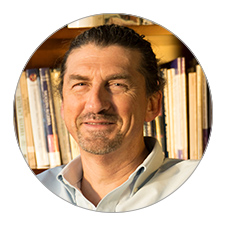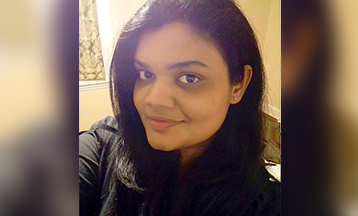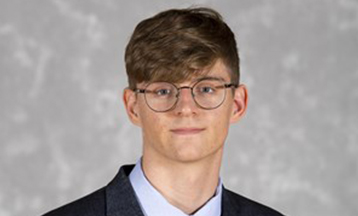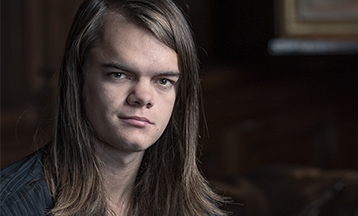-
About
Marist Commencement
Celebrating the Class of 2025
• The graduate ceremony will be on Friday, May 23.
• The undergraduate ceremony will be on Saturday, May 24.About
-
Academics
Marist Commencement
Celebrating the Class of 2025
• The graduate ceremony will be on Friday, May 23.
• The undergraduate ceremony will be on Saturday, May 24.Academics
-
Admission & Financial Aid
Marist Commencement
Celebrating the Class of 2025
• The graduate ceremony will be on Friday, May 23.
• The undergraduate ceremony will be on Saturday, May 24.Admission & Financial Aid
-
Student Life
Marist Commencement
Celebrating the Class of 2025
• The graduate ceremony will be on Friday, May 23.
• The undergraduate ceremony will be on Saturday, May 24.Student Life
- Athletics
Image of Joseph Kirtland

Joseph Kirtland
Poughkeepsie, NYAcademic School
Computer Science and MathCampus
New YorkIt all started with juggling.
Professor of Mathematics Joseph Kirtland had an idea for a book. While attending the 2016 Joint Mathematics Meetings in Seattle, he pitched the idea to a representative from De Gruyter, one of the world’s top-tier academic publishing houses. “I stopped at the De Gruyter booth in the exhibit hall, where one of the representatives from De Gruyter was juggling,” says Dr. Kirtland. “He dropped a ball and asked me if I juggle, and I said yes. He handed me the balls, and I started to juggle. As I was juggling, he asked me if I had any book ideas. I said yes, and the rest is history.” The book, Complementation of Normal Subgroups, is an exhaustive look into a specific area of group theory, one of the major foundational areas of mathematics.
Starting with the Schur-Zassenhaus theorem, Dr. Kirtland’s 144-page monograph documents a wide variety of results concerning complementation of normal subgroups in finite groups. The contents cover a wide range of material from reduction theorems and subgroups in the derived and lower nilpotent series to abelian normal subgroups and formations. According to Dr. Kirtland, “Normal subgroup complementation is one of my areas of research in finite groups. I saw that there were no books on this field targeted at graduate students and researchers in the field, so I decided to write one.”
Dr. Roger Norton, Dean of the School of Computer Science & Mathematics at Marist, noted the significance of this achievement. Said Dean Norton, “De Gruyter is one of the oldest and most respected academic presses in the world, and it speaks to the level of Joe’s scholarship that his work has been published there. We’re all extremely proud.”
Dr. Kirtland received his Ph.D. from the University of New Hampshire and completed his undergraduate work at Syracuse University. His professional interests are finite and infinite group theory, linear algebra, mathematics education, and mathematical computing. Dr. Kirtland also studies the application of group theory to the creation and use of check digit schemes; an earlier book, Identification Numbers and Check Digit Schemes, was published by the Mathematical Association of America (MAA) and won the Beckenback Book Prize, which is awarded to an author of a distinguished, innovative book published by the MAA.
About De Gruyter
Founded in 1749, De Gruyter is known for publishing first-class scholarship in a variety of academic disciplines. An international, independent publisher headquartered in Berlin (with satellite offices in Boston, Beijing, Basel, Vienna, Warsaw, and Munich), it has published some of the world’s greatest authors, including Goethe, the Brothers Grimm, and Noam Chomsky. De Gruyter publishes more than 1,300 new book titles each year and more than 900 journals in the humanities, social sciences, medicine, mathematics, engineering, computer sciences, natural sciences, and law. It offers a wide range of digital media, including open access journals and books. The group includes the imprints De Gruyter Akademie Forschung, Birkhäuser, De Gruyter Mouton, De Gruyter Oldenbourg, De Gruyter Open, De Gruyter Saur, and De|G Press. For more information, visit www.degruyter.com.



